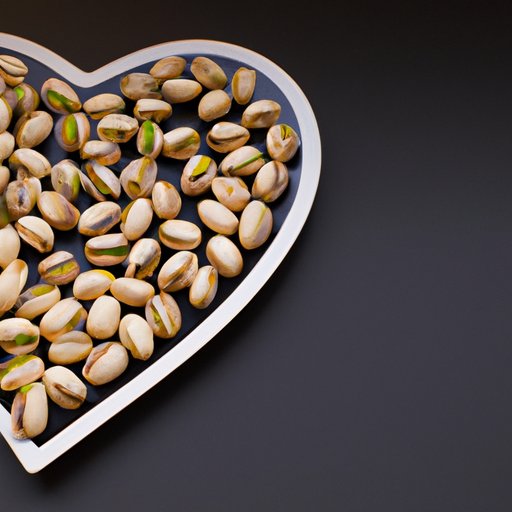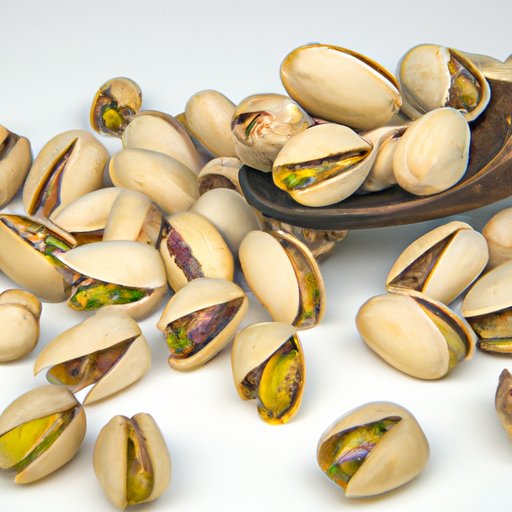Introduction
Pistachios are a versatile snack food that has been enjoyed around the world for centuries. Native to the Middle East, these nutty green gems are packed with vitamins, minerals and other nutrients that can provide a wealth of health benefits. In this article, we’ll explore the nutritional analysis of pistachios, the role they play in a balanced diet, and the potential protective effects of pistachios on the heart.
Exploring the Health Benefits of Eating Pistachios
Pistachios are an excellent source of plant-based protein, providing 6 grams per one-ounce serving. They are also rich in antioxidants, which help protect cells from damage caused by free radicals. Additionally, pistachios contain high levels of B vitamins, which are essential for energy metabolism and brain health.
In terms of macronutrients, pistachios are low in fat and calories, making them an ideal snack option for those looking to maintain a healthy weight. They are also high in dietary fiber, which is important for gut health and regularity.
When it comes to cooking with pistachios, roasting them brings out their natural sweetness and enhances their flavor. Roasted and salted pistachios make a great addition to salads, desserts and other dishes. For a more nutritious snack, try raw or lightly toasted pistachios.
The key to unlocking the full health benefits of pistachios is to incorporate them into a balanced diet. Adding pistachios to meals and snacks will not only provide extra flavor and texture, but also increase your daily intake of vitamins and minerals.

Pistachios and Heart Health: What the Research Says
Research suggests that eating pistachios may have a positive effect on cardiovascular health. A study published in the journal Nutrients found that consuming pistachios as part of a Mediterranean-style diet was associated with lower levels of LDL (“bad”) cholesterol and higher levels of HDL (“good”) cholesterol.
Another study published in the British Journal of Nutrition examined the effects of pistachios on markers of inflammation. Researchers found that participants who ate a diet rich in pistachios experienced reduced levels of inflammatory markers, suggesting that pistachios may have anti-inflammatory properties.
It’s important to note that while the research is promising, more studies are needed to fully understand the potential protective effects of pistachios on the heart. Additionally, factors such as age, sex, lifestyle and genetics can all influence how an individual responds to pistachio consumption.
Conclusion
Overall, pistachios are a nutritious snack food that can be enjoyed as part of a healthy diet. They are an excellent source of plant-based protein and contain high levels of antioxidants, B vitamins and dietary fiber. Furthermore, research suggests that consuming pistachios may have a positive effect on cardiovascular health. However, it’s important to consider factors such as age, sex, lifestyle and genetics when eating pistachios for heart health.
To reap the full benefits of pistachios, aim to include them in your diet on a regular basis. Try adding them to salads, desserts and other dishes for extra flavor and texture. For a more nutritious snack, opt for raw or lightly toasted pistachios. With a little creativity, you can easily incorporate pistachios into your meals and snacks for a delicious and nutritious boost.
(Note: Is this article not meeting your expectations? Do you have knowledge or insights to share? Unlock new opportunities and expand your reach by joining our authors team. Click Registration to join us and share your expertise with our readers.)
